The world’s first sterilization-able soft organic transistor
〜 A path to the development of implantable devices 〜
【embargo lift up】
・This page is prepared for news reporters to obtain all press release materials related to “Imperceptible electronics ".
・Please strictly restrain from reporting on this context until the embargo is lifted at 16:00 (GMT) on March 6, 2012.
・Please send a copy of the article to Someya (contact address: someya@ee.t.u-tokyo.ac.jp) when it is put out.
Documents
Press Release |
pdf (279KB) (Only in Japanese) |
|---|
Photos
| Low resolution | High resolution | ||
|---|---|---|---|
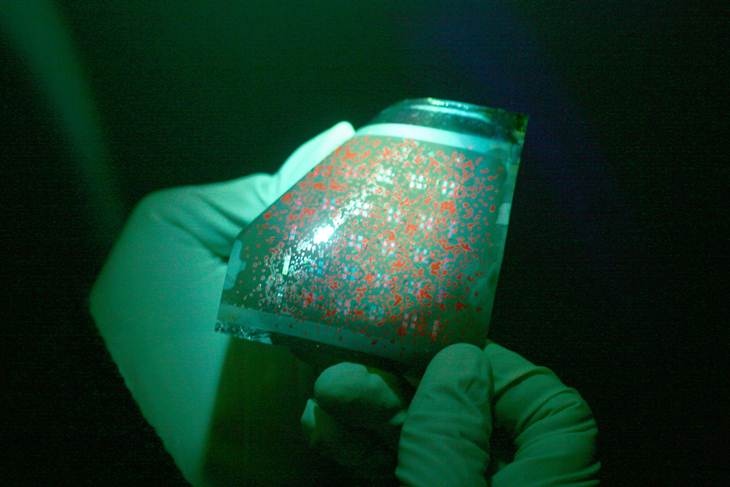 |
Image1 | JPEG(5.9 MB) | |
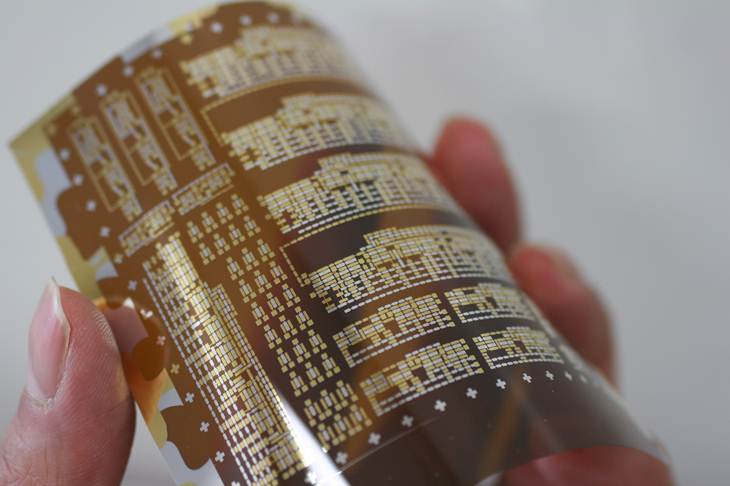 |
Image2 | JPEG(5.9 MB) | |
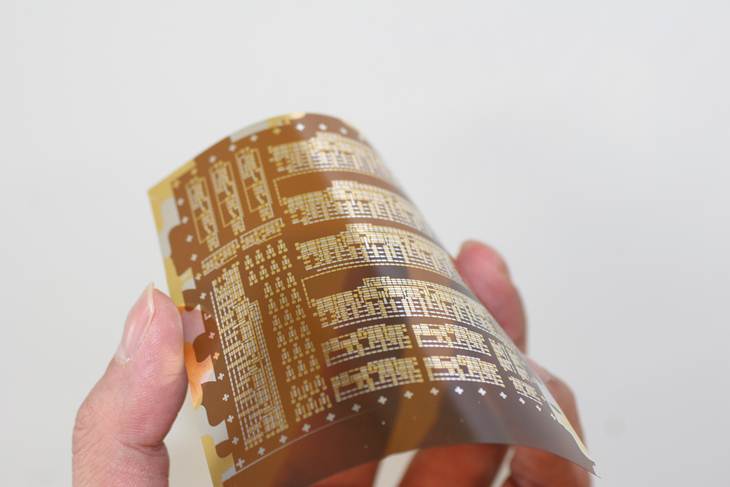 |
Image3 | JPEG(2.9 MB) | |
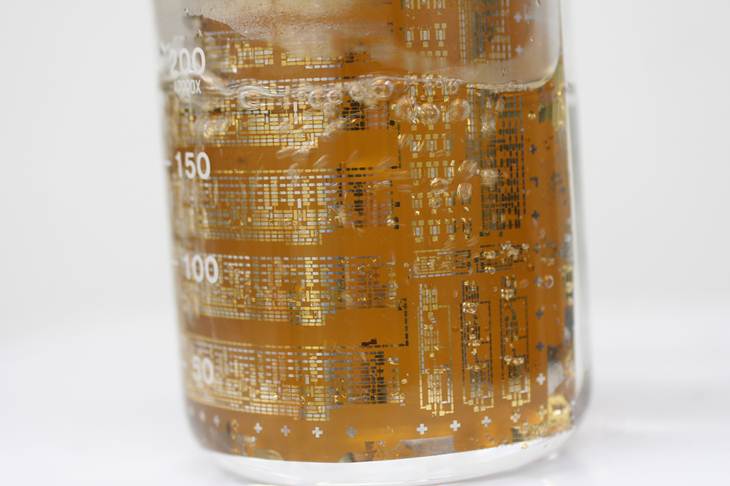 |
Image4 | JPEG(2.6 MB) | |
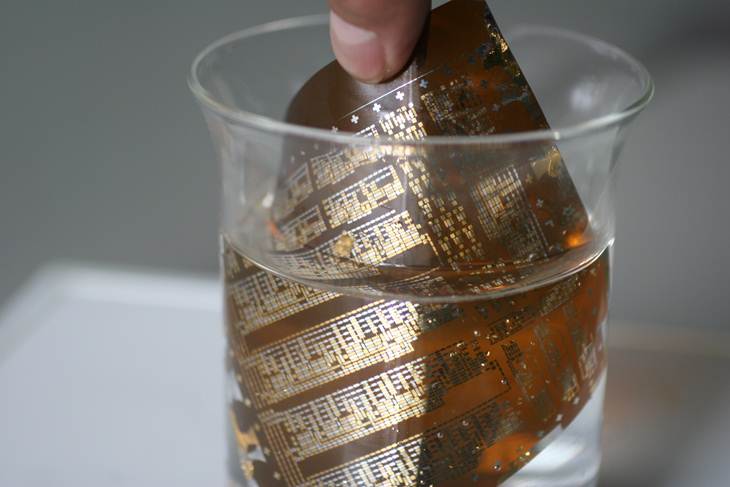 |
Image5 | JPEG(2.9 MB) | |
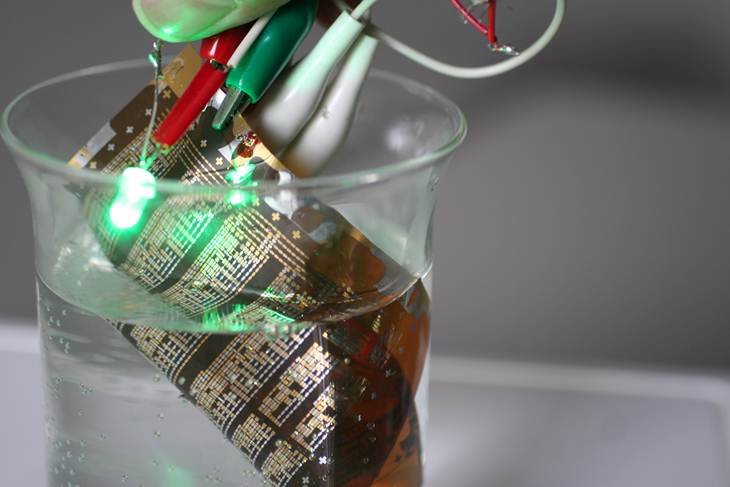 |
Image6 | JPEG(3.0 MB) | |
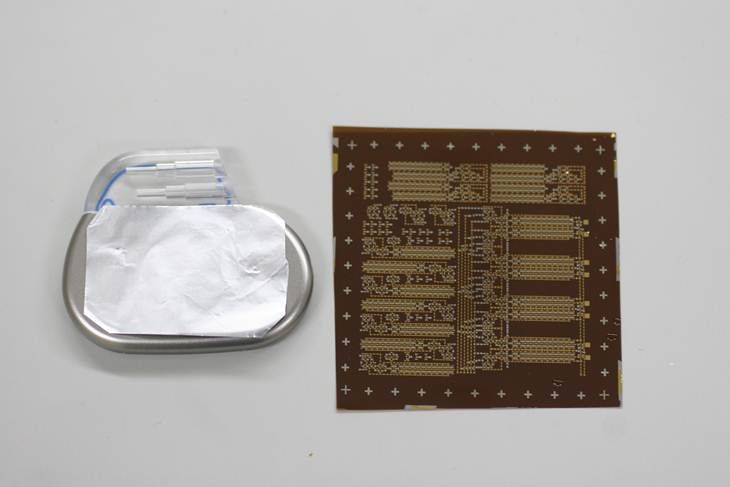 |
Image7 | JPEG(2.6 MB) | |
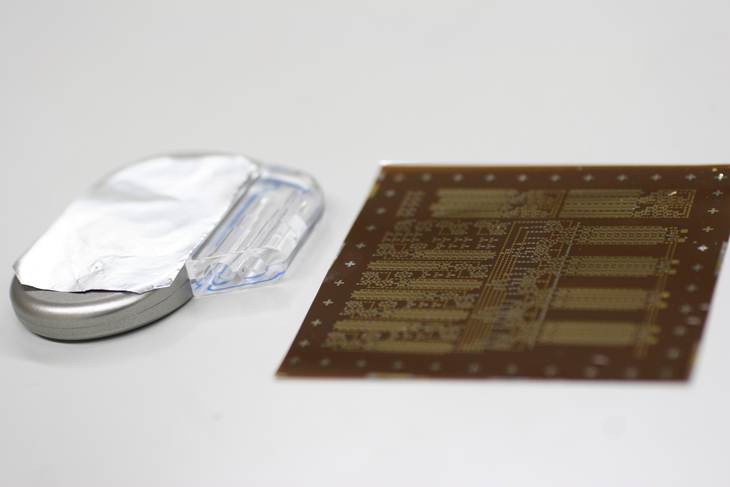 |
Image8 | JPEG(2.4 MB) |
Movies
movie1 |
Movie1 | WMV(9.9 MB) |
movie2 |
Movie2 | WMV(15.8 MB) |
movie3 |
Compressed Movie Data | ZIP(25.4 MB) |
Abstract
Tokyo, Japan - An international research team has succeeded in manufacturing on a polymeric film the world’s first flexible organic transistor (Term 1) that is robust enough under high temperature medical sterilization process. The study is to be published online in Nature Communications on March 6, 2012. In a serious aging society with a declining birthrate, electronics are increasing their importance in the health and medical area as more IT devices are being introduced. Upon this background, an expectation is getting higher on an organic transistor, which is a soft electronic switch. A flexible organic transistor can easily be manufactured on a biocompatible polymeric film, and this is the reason why it is expected to adopt it to a wearable health monitor without a stress, and/or implantable devices such as a soft pace maker. For practical implementation, it is crucial (1) to make the best use of its softness and biocompatibility, simultaneously (2) to decrease driving voltage down to a few V, and (3) to decrease the risk of infections by sterilization, for a security reason. Up until now, however, the existing organic transistors had huge obstacles towards the practical usage in the health and medical field. For example, typical driving voltage for displays is high (i.e. 20 to 80 V) and/or and it is not durable under high temperature sterilization The team has succeeded in manufacturing on a polymeric film an organic transistor that has high thermal stability and driving voltage of 2V at the same time. The new type organic transistor can be sterilized in a standard sterilization process (150 °C heat treatment) without being deteriorated in its electrical performances. The key to realize heat resistant organic transistor is in the forming technique of an ultrathin insulator film: The team develops a technique to form extraordinarily densely packed self-assembled monolayer (SAM, Term 2) films, whose thickness is as small as 2 nanometers, on a polymeric film. This allows them to elevate substrate temperature up to 150 °C without creating pinholes (Term 3) through SAM films during the high temperature treatment. It is believed that ultrathin monolayer film like SAM degrades easily by thermal processes; however, it is unexpectedly demonstrated that densely packed SAM is stable at 150 °C or higher. This result is also proved by systematic characterization of crystallographic structures of SAM using a synchrotron radiation beam. Furthermore, by adopting a novel encapsulation layer comprising organic/metal composite materials and extremely thermally stable and high mobility organic semiconductors, the thermal stability of organic transistors is now improved up to 150 °C. It should be benefited more from applying this heat-resistant organic transistor to long term implantable devices, or to some medical devices such as a smart catheter. With these applications, it is expected to broaden the usage of the transistor to medical apparatus such as thin film sensor that will detect tumors, inflammations, and or cancers. The international team is led by Dr. Takao Someya, who is a professor of the University of Tokyo (President: Jyunichi Hamada, Ph.D.), a research director of ERATO (Exploratory Research for Advanced Technology) “Someya Bio-Harmonized Electronics Project” of Japan Science and Technology Agency (JST, President: Michiharu Nnakamura, D.Sc.), and a global scholar of Princeton University (President: Shirley M. Tilghman, Ph.D.), in collaborations with Associate Professor Tsuyoshi Sekitani of the University of Tokyo and Professor Yueh-Lin (Lynn) Loo of Princeton University. This joint research project was also carried out with the following institutions: Max Planck Institute for Solid State Research, Germany, National Institute of Standards and Technology, NIST, U.S., Hiroshima University, and Nippon Kayaku Co., Japan.
Contact information
Dr. Takao Someya, Professor Department of Electrical Engineering and Information Systems
Department of Electrical Engineering and Information Systems
The University of Tokyo7-3-1 Hongo, Bunkyo-ku, Tokyo 113-8656, Japan
TEL: (+81)-3-5841-0411 FAX: (+81)-3-5841-6709 E-mail:someya@ee.t.u-tokyo.ac.jp
URL:http://www.ntech.t.u-tokyo.ac.jp/